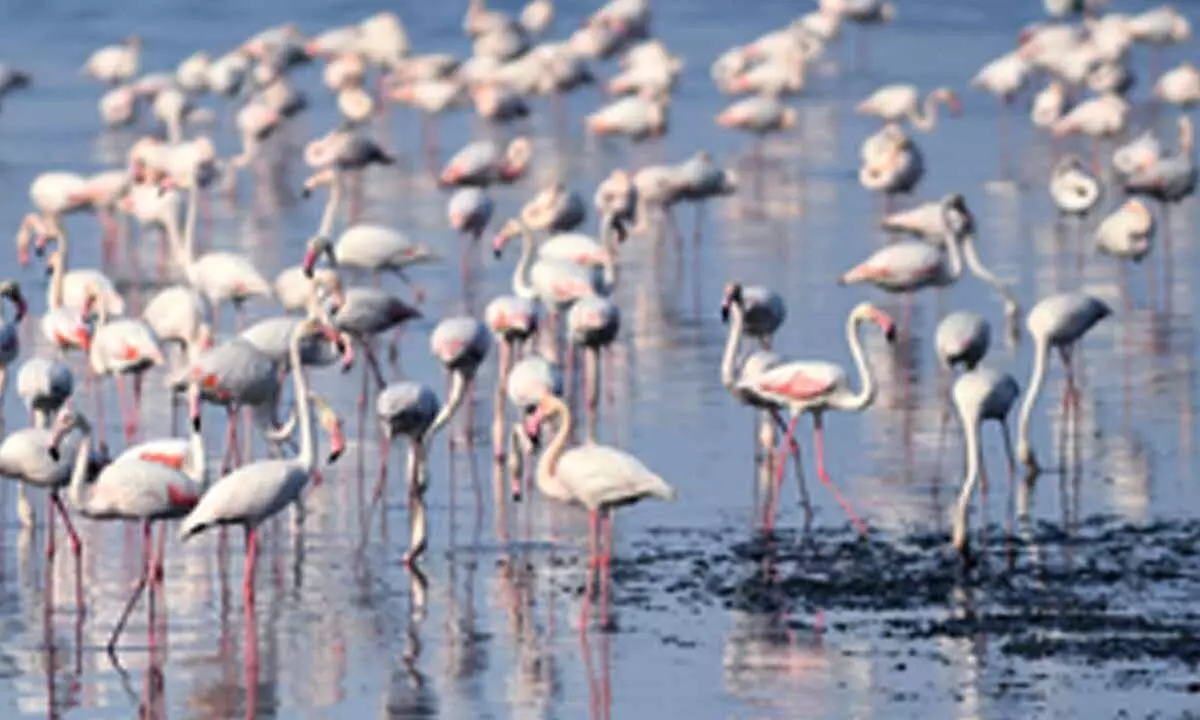Conservation efforts for flamingos in Turkish lake show progress

After several years of mass flamingo chick deaths caused by climate change-induced drought and water misuse in central Turkey's Lake Tuz, conservation efforts have improved conditions for the country's largest flamingo population, local activists and scientists said.
Ankara: After several years of mass flamingo chick deaths caused by climate change-induced drought and water misuse in central Turkey's Lake Tuz, conservation efforts have improved conditions for the country's largest flamingo population, local activists and scientists said.
As the second largest lake in Turkey and an important stopover for migratory birds, Lake Tuz, or Salt Lake in Turkish, is also a destination for tourists and bird watchers from both Turkey and abroad.
"There is improvement in the region for the birds," said Fahri Tunc, an activist and local wildlife photographer, noting the number of live flamingo chicks has increased over the past two years, with around 4,500 chicks surviving this year.
Tunc, also the president of the Bird's Eye View of Nature and Ecology Association, explained that in some parts of the lake, drought continues to affect nesting activities. But thanks to conservation efforts, other areas had offered good nesting grounds for the chicks.
"The chicks have grown and will soon depart for warmer lands," he said, though he lamented that the lake is overall still reeling from severe drought, partly due to nearby farmers diverting water resources to their fields and digging wells for water-intensive crops.
Over the past two years, the Ministry of Environment, Urbanization and Climate Change has been conducting the Lake Tuz protection studies project for endangered species, Xinhua news agency reported.
Ahmet Karatas, a scholar from Turkey's Nigde Omer Halisdemir University who coordinates the project, said conservation efforts for the nestlings have proven successful in the lake.
"Our region is one of the driest places in Türkiye... Thanks to some measures and the ministry's efforts, water was brought into the area," the scholar told the semi-official Anadolu Agency, noting that the conservation project pumps water to nesting areas through a four-km solar-powered pipeline, which is crucial for providing water to nestlings during the hot and dry months of the summer.
In late August, Environment Minister Murat Kurum shared images of the region on social media, saying, "We are taking care of Anatolia's most sensitive guests" through the project, which has successfully prevented the mass deaths of flamingo nestlings because of dehydration.










